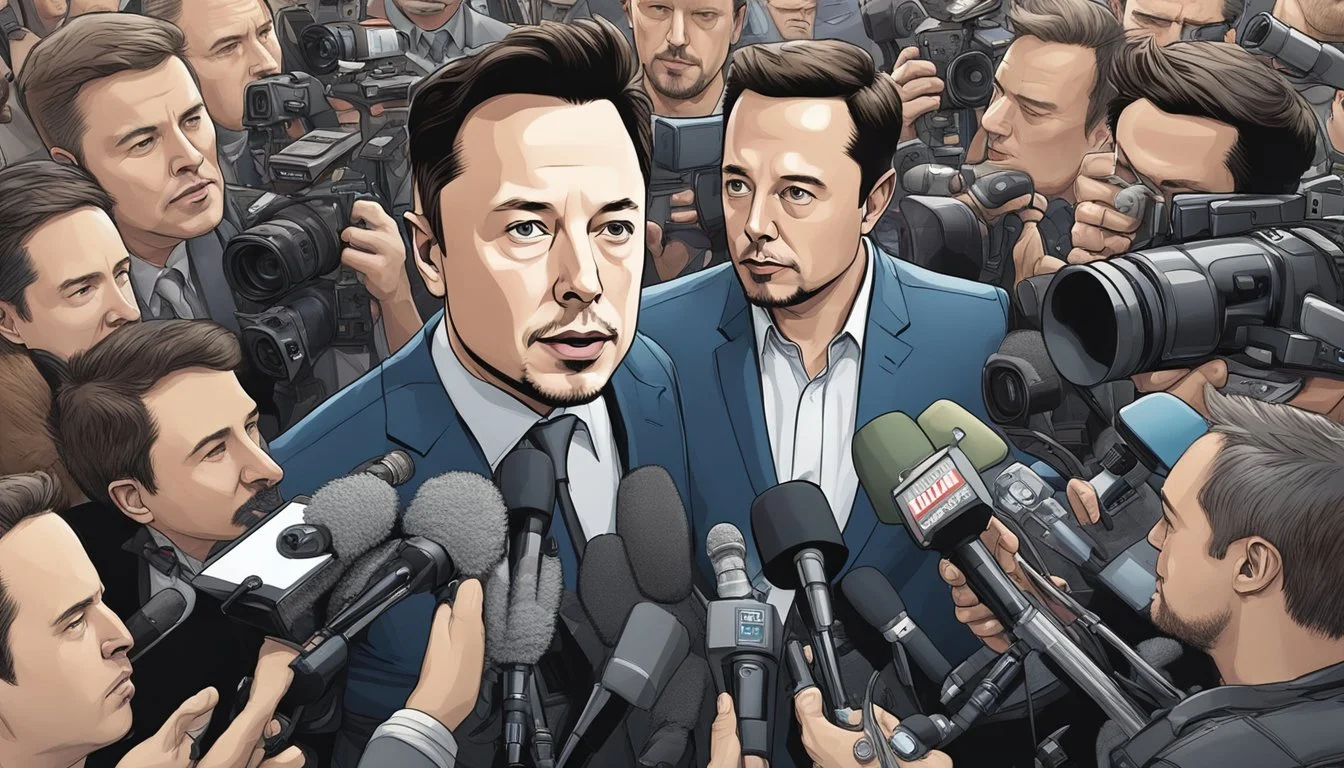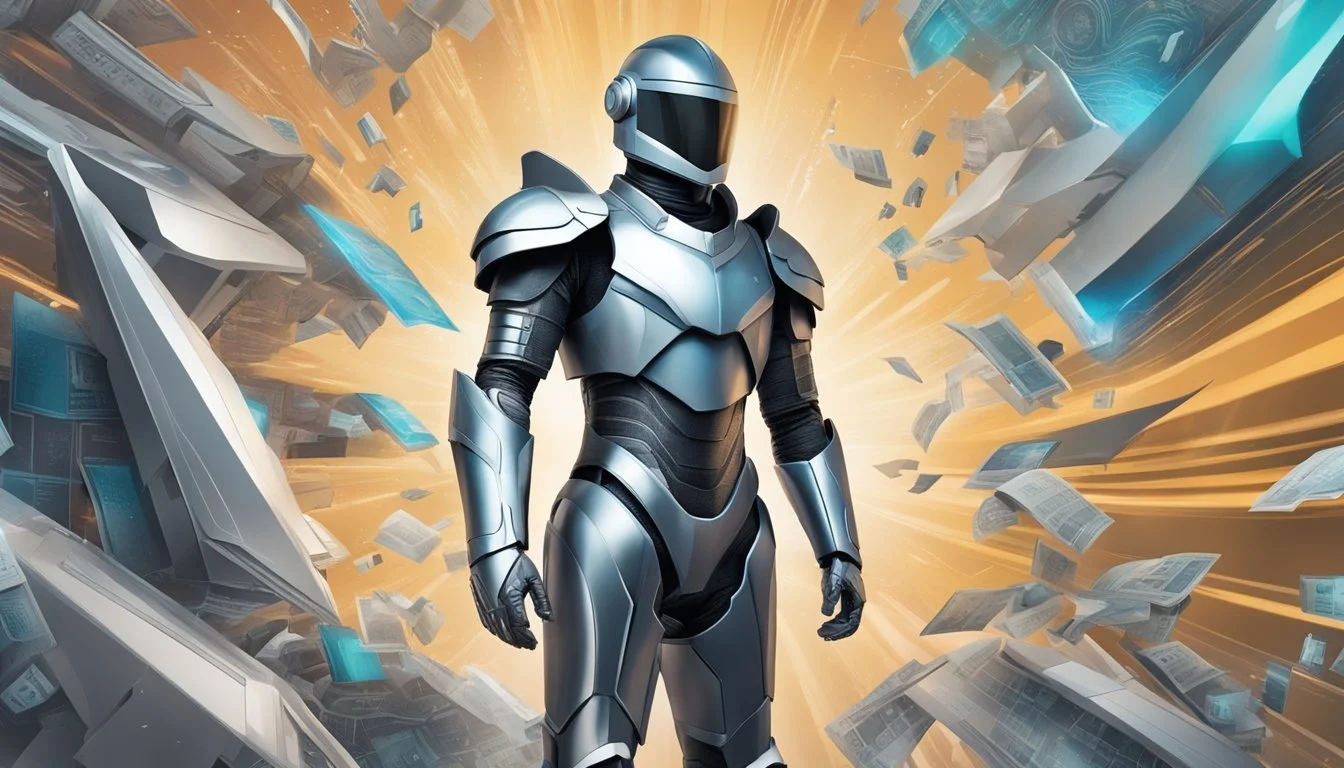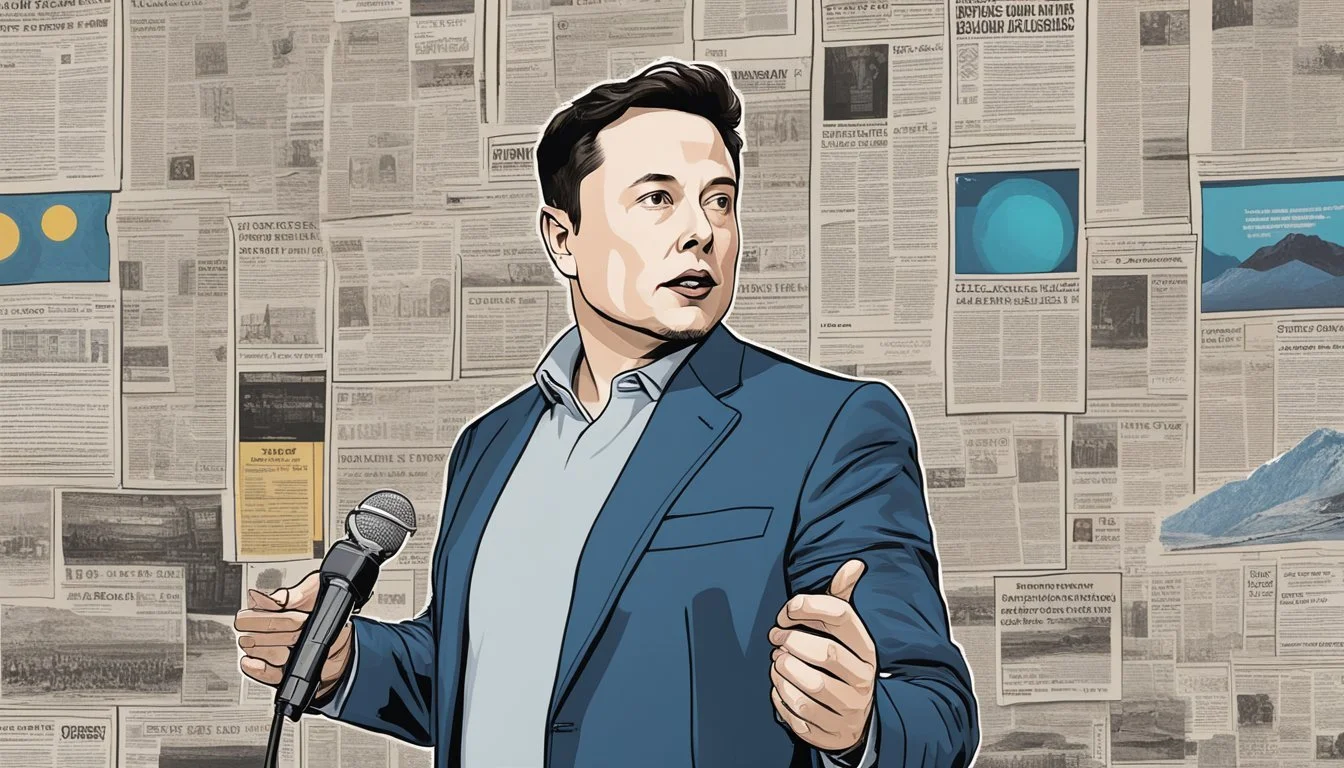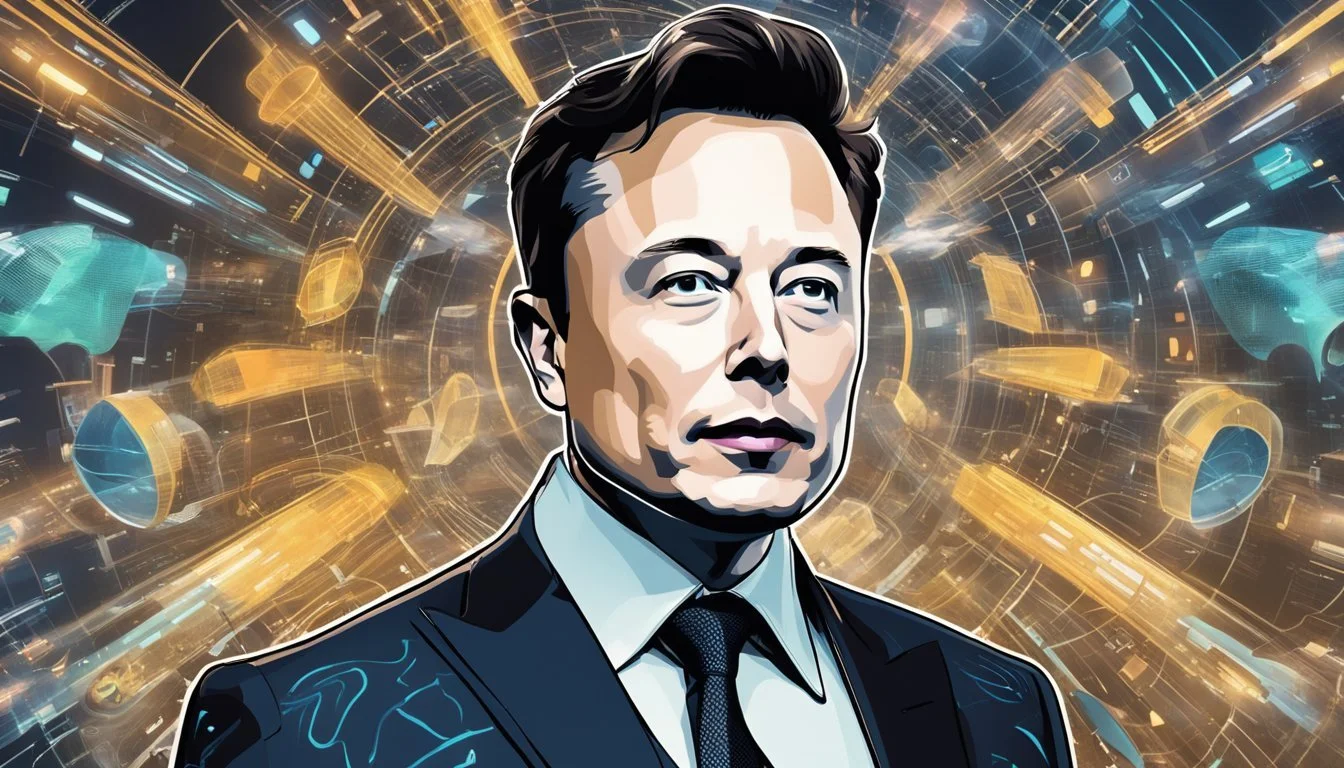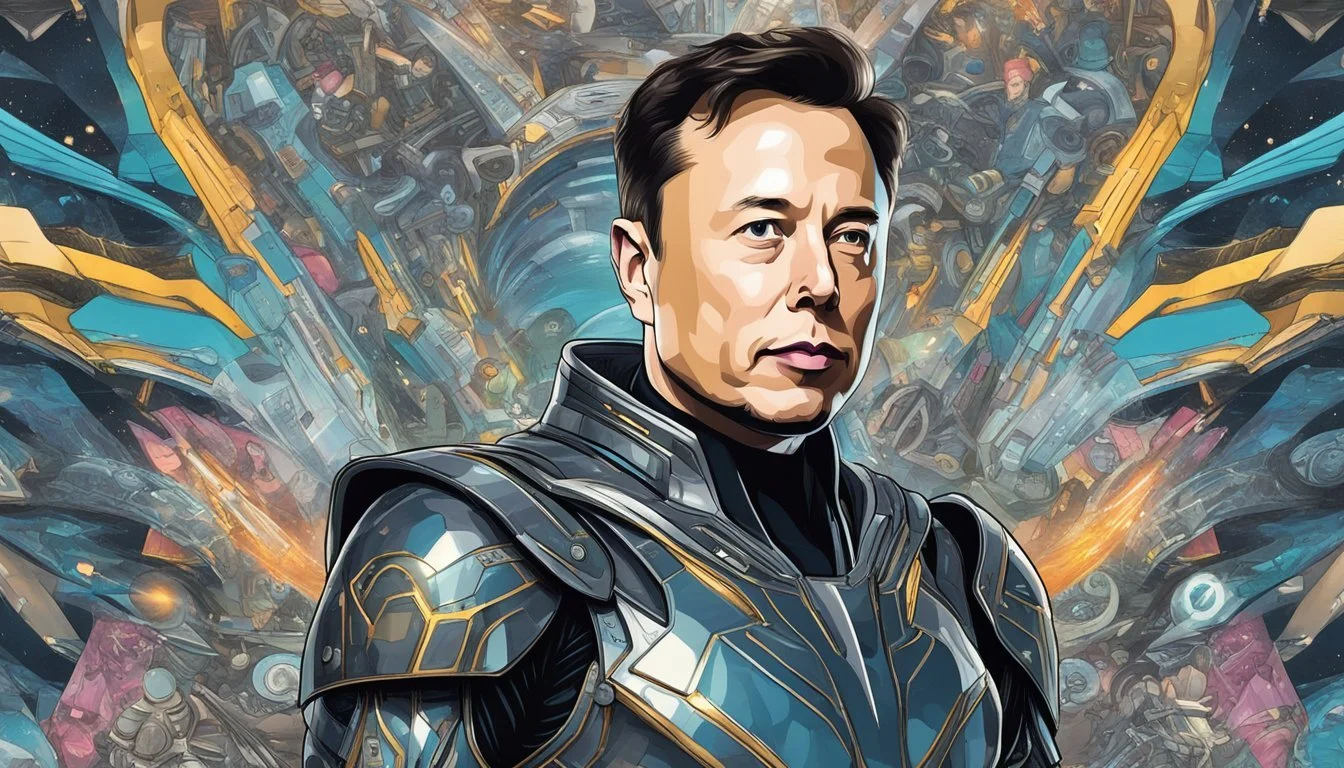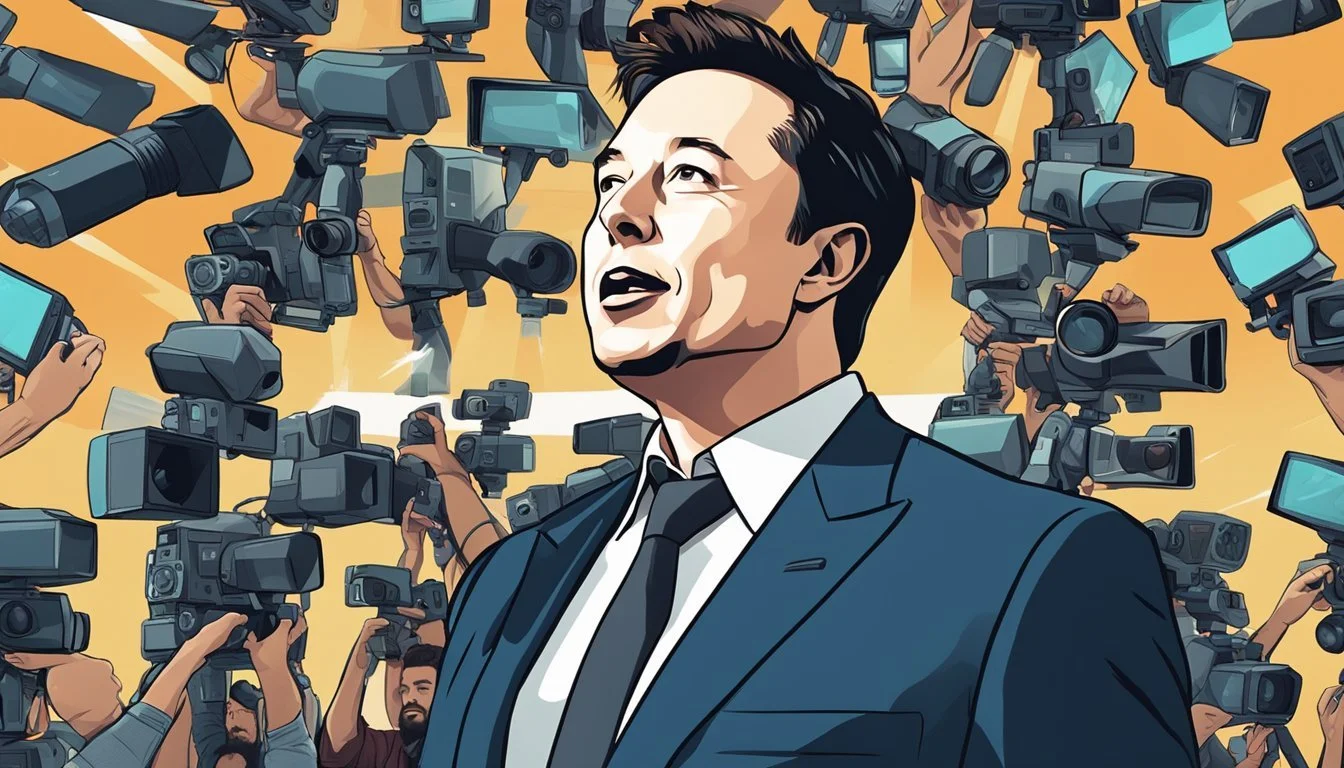Musk vs. Media: The Complicated Relationship Explored in Real Life Iron Man
A Deep Dive into Tech Titan's Media Battles
Elon Musk's public persona has often drawn comparisons to Tony Stark, the fictional genius behind Iron Man. This parallel has captured the imagination of both the media and the public, fueling a narrative that blends reality with comic book fantasy. The media's portrayal of Musk as a real-life Iron Man has significantly shaped public perception of the tech mogul, highlighting his innovative ventures and larger-than-life personality.
Musk's ambitious projects, from electric cars to space exploration, have contributed to his image as a visionary entrepreneur. His companies, including Tesla and SpaceX, push technological boundaries in ways that seem to mirror the fictional Stark Industries. This has led to a complex relationship between Musk and the media, with coverage often oscillating between admiration and skepticism.
The "Real Life Iron Man" narrative has both benefits and drawbacks for Musk. It has helped create a compelling brand image, attracting attention to his ventures. Yet it also sets high expectations and invites intense scrutiny of his actions and statements. This dynamic continues to evolve as Musk's influence in technology and social media grows, shaping the ongoing dialogue between the entrepreneur and the press.
Decoding the Persona
Elon Musk's public image blends real-world achievements with larger-than-life comparisons. His persona draws parallels to fictional characters and historical figures, shaping his brand as a visionary entrepreneur.
Influence of Tony Stark
Musk's portrayal as a "Real Life Iron Man" stems from similarities with Marvel's Tony Stark. Both are innovative tech billionaires with grand visions for the future. Musk's ventures in electric cars, space exploration, and sustainable energy mirror Stark's fictional inventions.
This comparison gained traction in popular culture, reinforced by Musk's cameo in "Iron Man 2." The media often uses this parallel to frame Musk's endeavors, creating a narrative of a real-world superhero tackling global challenges.
Musk himself has played into this image, occasionally referencing Iron Man in public appearances and social media posts.
Celebrity CEO and Branding
Musk's persona extends beyond the Iron Man comparison, positioning him as a celebrity CEO. His active social media presence, particularly on Twitter, allows direct communication with the public. This approach echoes Steve Jobs' style of personal branding.
Musk's tweets often generate headlines, influencing stock prices and public opinion. His unfiltered communication style sets him apart from traditional CEOs, creating a sense of authenticity and accessibility.
This celebrity status amplifies Musk's influence beyond his companies. He's become a cultural icon, sparking discussions on technology, space exploration, and the future of humanity.
Musk's branding also draws comparisons to historical figures like Howard Hughes, blending entrepreneurial success with a flair for the dramatic.
Biographical Overview
Elon Musk's journey from a young entrepreneur to a tech mogul spans decades of innovation and risk-taking. His early life, education, and initial ventures laid the groundwork for his future success in the tech industry.
Childhood and Early Life
Born in Pretoria, South Africa in 1971, Elon Musk showed an early aptitude for technology and business. He taught himself computer programming at age 12 and sold his first software, a game called Blastar, for $500.
Musk's childhood was marked by challenges, including bullying at school and a difficult relationship with his father. These experiences shaped his drive and resilience.
At 17, Musk moved to Canada to avoid mandatory military service in South Africa. He worked odd jobs before enrolling in college.
Educational Milestones
Musk attended Queen's University in Ontario for two years before transferring to the University of Pennsylvania. There, he pursued a dual bachelor's degree in economics and physics.
His studies provided a foundation for his future ventures, combining business acumen with scientific knowledge. Musk's time at Penn exposed him to cutting-edge research and entrepreneurial thinking.
After graduating in 1995, Musk began a Ph.D. in energy physics at Stanford University. However, he left the program after just two days to pursue his entrepreneurial ambitions.
Startup Ventures and PayPal
In 1995, Musk co-founded Zip2, a web software company providing business directories and maps to newspapers. The company was sold to Compaq in 1999 for $307 million.
Musk then founded X.com, an online financial services company. In 2000, X.com merged with Confinity, which operated PayPal. The combined entity focused on PayPal's money transfer service.
As part of the "PayPal Mafia," Musk played a crucial role in the company's growth. eBay acquired PayPal in 2002 for $1.5 billion, with Musk earning $165 million from the sale.
These early successes provided Musk with the capital and experience to pursue his more ambitious projects in space technology and electric vehicles.
Business Empire
Elon Musk's business empire spans multiple industries, from space exploration to electric vehicles and renewable energy. His companies aim to revolutionize transportation, energy production, and space travel.
SpaceX and the Quest for Mars
SpaceX, founded in 2002, has transformed space exploration. The company pioneered reusable rockets, significantly reducing launch costs. Its Falcon 9 and Falcon Heavy rockets have completed numerous successful missions.
SpaceX's Starship project aims to enable human colonization of Mars. The company has made substantial progress in developing this fully reusable spacecraft.
SpaceX also launched Starlink, a satellite internet constellation providing global broadband coverage. This project could revolutionize internet access in remote areas.
Tesla Motors and Electric Cars
Tesla Motors, co-founded by Musk in 2003, has led the electric vehicle revolution. The company's first mass-market car, the Model S, set new standards for electric vehicles.
Tesla expanded its lineup with the Model 3, Model X, and Model Y. These vehicles combine long range, high performance, and advanced technology.
The company's innovations extend beyond cars. Tesla's Gigafactories produce batteries and solar panels, supporting its mission of sustainable energy.
Tesla's Autopilot system has pushed the boundaries of autonomous driving technology. The company continues to refine this system, aiming for full self-driving capability.
SolarCity and Renewable Energy
SolarCity, founded by Musk's cousins with his support, became a major player in solar energy. Tesla acquired SolarCity in 2016, integrating it into its sustainable energy ecosystem.
The company offers solar panels and the innovative Solar Roof, which replaces traditional roofing materials with solar tiles. This integration of solar technology into building materials represents a significant advancement in residential solar power.
Tesla's Powerwall and Powerpack products provide energy storage solutions for homes and businesses. These systems complement solar installations, enabling greater energy independence.
The Boring Company and Infrastructure
The Boring Company, founded by Musk in 2016, focuses on revolutionizing urban transportation. Its primary goal is to build underground tunnel networks to alleviate traffic congestion.
The company has completed projects like the Las Vegas Convention Center Loop. This underground transportation system uses Tesla vehicles to shuttle passengers through tunnels.
Future plans include larger-scale projects in major cities. The Boring Company aims to create high-speed underground transportation networks, potentially integrating with Hyperloop technology.
Innovations and Advancements
Elon Musk has proposed and pursued revolutionary technologies aimed at transforming transportation and human-machine interfaces. His ventures push the boundaries of what's possible in high-speed travel and brain-computer connections.
Hyperloop and Transportation
The Hyperloop concept envisions passenger pods traveling through low-pressure tubes at near-supersonic speeds. Musk open-sourced the idea in 2013, inspiring multiple companies to develop prototypes. Virgin Hyperloop completed the first passenger test in 2020, reaching speeds of 107 mph.
Challenges remain in scaling the technology and reducing costs. Critics question its practical feasibility for mass transit. Supporters argue it could revolutionize inter-city travel, potentially connecting Los Angeles to San Francisco in 35 minutes.
Musk's other transportation innovations include Tesla's electric vehicles and the Boring Company's underground tunnels for reducing traffic congestion.
Neuralink and Artificial Intelligence
Neuralink, founded by Musk in 2016, aims to develop brain-computer interfaces. The company has created ultra-thin "threads" that can be implanted in the brain to read neural signals. Potential applications include treating neurological conditions and enhancing human cognitive abilities.
Musk claims Neuralink could eventually allow direct communication between brains and computers. The technology raises ethical concerns about privacy and mental autonomy.
AI development is another focus for Musk. He co-founded OpenAI in 2015 to advance artificial intelligence in a responsible manner. Musk has also warned about potential risks of uncontrolled AI development, advocating for regulatory oversight.
Elon Musk in Popular Culture
Elon Musk's influence extends beyond the realms of technology and business into popular culture. His public persona and innovative endeavors have inspired fictional characters and storylines in various media.
Inspiration for Iron Man 2
Elon Musk's real-life achievements and personality served as inspiration for the character of Tony Stark in "Iron Man 2". Director Jon Favreau and actor Robert Downey Jr. sought to portray a modern industrialist and drew parallels with Musk's entrepreneurial spirit.
The film incorporated elements of Musk's companies, with scenes shot at SpaceX facilities. This connection brought a sense of realism to the fictional world of Tony Stark.
Musk even made a cameo appearance in the movie, further cementing the link between his public image and the Marvel character.
Representation in Comics and Films
Beyond Iron Man, Musk's likeness and ideas have appeared in other comic books and films. Some graphic novels have featured characters based on his appearance and technological pursuits.
In animated series, Musk-inspired characters often embody the archetype of a visionary tech mogul. These portrayals range from admiring to satirical, reflecting the public's varied perceptions of the entrepreneur.
Documentaries and biopics have also explored Musk's life and work, presenting him as a complex figure in the tech world. These films often highlight his ambitions in space exploration and sustainable energy.
Musk vs. Media
Elon Musk's relationship with the media has been marked by both admiration and conflict. His innovative ventures have garnered extensive coverage, while his outspoken nature has led to numerous controversies.
Media Coverage and Perception
Elon Musk has become a celebrity businessman, attracting significant media attention. His ventures in electric vehicles, space exploration, and renewable energy have made him a regular feature in business and technology news. Many outlets have portrayed him as a real-life Tony Stark, dubbing him the "Iron Man" of Silicon Valley.
The media has often highlighted Musk's ambitious goals and innovative approaches. His companies' milestones, such as SpaceX's reusable rockets and Tesla's electric car advancements, have received widespread positive coverage.
However, Musk's public persona and management style have also faced scrutiny. His unconventional tweets and bold statements have sometimes led to negative press, impacting his companies' stock prices and public image.
Handling Criticism and Controversy
Musk's response to criticism has been a source of ongoing debate. He frequently uses Twitter to directly address negative coverage, often challenging journalists and media organizations. This approach has both supporters and detractors.
Some view Musk's media interactions as refreshingly direct, while others see them as combative or unprofessional. His acquisition of Twitter in 2022 further complicated this dynamic, giving him control over a major social media platform.
Musk has faced controversies related to product delays, workplace conditions, and personal conduct. His handling of these issues has ranged from public apologies to defiant rebuttals, often amplified by his massive social media following.
His relationship with traditional media outlets remains complex, with Musk frequently questioning their integrity and promoting alternative news sources.
Conclusion
Elon Musk's portrayal as a "Real Life Iron Man" has shaped his public image and relationship with the media. This comparison to Tony Stark highlights both Musk's technological innovations and his complex personality.
Musk's companies, often likened to Stark Industries, have pushed boundaries in electric vehicles, space travel, and renewable energy. These achievements have cemented his status as a visionary entrepreneur.
The media's fascination with Musk has led to extensive coverage of his professional and personal life. This attention has both benefited and challenged the tech mogul.
As a celebrity CEO, Musk wields significant influence through social media and public appearances. His unconventional communication style often generates headlines and sparks debates.
The "Real Life Iron Man" narrative has elevated Musk to near-mythical status in popular culture. However, this image also invites scrutiny and criticism of his actions and statements.
Musk's relationship with the media remains dynamic and multifaceted. It reflects the broader tensions between innovative tech leaders and traditional journalism in the digital age.

